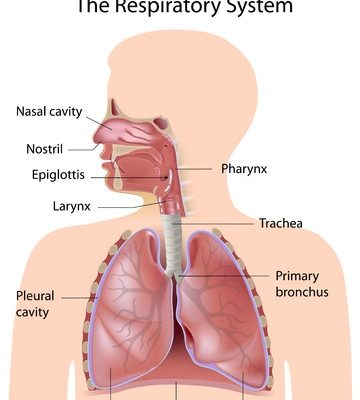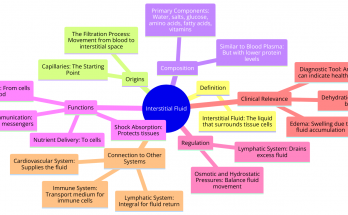Respiration is the chemical process of releasing energy by breaking down glucose for carrying out life processes.
What is the Importance of Respiration ?
Energy in food is in a form that cannot be used by cells.
During respiration, food energy is converted into a form that all cells can use. Aerobic respiration returns CO, to the atmosphere where it can be used again by photosynthetic organisms
12 Importance of The Respiration Process
1. Movement
- Energy is needed to make muscle cells contract so that animals can walk, run, or leap.
- Some muscles work all the time, such as those that make your heart beat.
- Energy from respiration powers muscle contraction.
2. Growth
- Energy is needed for growth and repair of organisms.
- For example Caterpillars grow very quickly. They rely on energy from respiration to create new cells for this growth throughout their life cycle.
Also Check – Role of Respiratory Pigment in Respiration
3. Keeping warm
- Mammals and birds use energy to keep their body temperature constant.
- When they Respire, heat is released and transported around the body through the blood.
- The rate of Respiration increases in colder environments to help maintain body temperature.
- For Example Penguins use a considerable amount of energy to maintain a high body temperature.
4. Building large molecules
- All cells need to make large molecules by joining smaller units together. Trees make large proteins by using small amino acids. Building these large molecules requires energy from Respiration.
5. Transport of substances
- In plants, minerals such as nitrates from the soil are transferred to the root hair cells by active transport – a process that requires energy from Respiration.
Also Check – Respiration in Plants
6. Relaying information
- Nerve signals (impulses) relay information to the brain, allowing animals to respond instantly to changes in the environment – from spotting prey to being alert to danger.
- Respiration provides the energy needed to send these nerve signals from one part of the body to another within a few milliseconds.
- Example – Eagles have excellent vision – they can spot prey up to five times further than we can
7. Maintains homeostasis
- Respiration plays a critical role in maintaining the body’s internal environment, or homeostasis.
- The body’s internal environment must be kept within a narrow range of conditions for the organism to survive. Respiration helps maintain this balance by controlling the levels of carbon dioxide and oxygen in the body.
Also Check – Respiration in Animals
8. Maintains pH levels
- Respiration helps to regulate the pH levels in the body by controlling the production of carbonic acid and bicarbonate ions.
9. Supports immune system
- Respiration also helps to support the immune system by generating energy for the production of white blood cells and antibodies.
10. Supports Digestion
- Respiration also helps to support digestion by providing energy for the muscles that move food through the digestive tract.
11. Detoxification
- Respiration can help remove toxins from the body. For example, many plants release oxygen through respiration, which can help purify the air.
12. Synthesis of Macromolecules
Respiration plays a role in the synthesis of macromolecules, such as proteins, nucleic acids, and carbohydrates, which are essential for the growth and maintenance of cells.


5 Comments on “Importance Of Respiration”